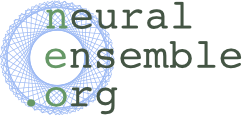We're happy to announce the second beta release of PyNN 0.8.
With this release we are getting close to a first release candidate: the NEST and NEURON backends are essentially feature complete, although with a few bugs remaining. If you're using one of these simulators as your PyNN backend we recommend using this beta release for new projects; now would also be a good time to think about upgrading existing projects. The Brian backend is less well developed, but considerable progress has been made.
For a list of the main changes between PyNN 0.7 and 0.8, see the release notes for the 0.8 alpha 1 release.
For the changes in this beta release see the release notes. In particular note that this release requires NEST version 2.4, and for the first time supports Python 3.2+ as well as Python 2.6 and 2.7. Support for NEST 2.6 will be provided in an upcoming release.
The source package is available from the INCF Software Center.
PyNN (pronounced 'pine' ) is a simulator-independent language for building neuronal network models.
In other words, you can write the code for a model once, using the PyNN API and the Python programming language, and then run it without modification on any simulator that PyNN supports (currently NEURON, NEST and Brian).
Even if you don't wish to run simulations on multiple simulators, you may benefit from writing your simulation code using PyNN's powerful, high-level interface. In this case, you can use any neuron or synapse model supported by your simulator, and are not restricted to the standard models.
PyNN is also being used as a user-friendly interface to neuromorphic hardware systems.
The code is released under the CeCILL licence (GPL-compatible).
With this release we are getting close to a first release candidate: the NEST and NEURON backends are essentially feature complete, although with a few bugs remaining. If you're using one of these simulators as your PyNN backend we recommend using this beta release for new projects; now would also be a good time to think about upgrading existing projects. The Brian backend is less well developed, but considerable progress has been made.
For a list of the main changes between PyNN 0.7 and 0.8, see the release notes for the 0.8 alpha 1 release.
For the changes in this beta release see the release notes. In particular note that this release requires NEST version 2.4, and for the first time supports Python 3.2+ as well as Python 2.6 and 2.7. Support for NEST 2.6 will be provided in an upcoming release.
The source package is available from the INCF Software Center.
What is PyNN?
PyNN (pronounced 'pine' ) is a simulator-independent language for building neuronal network models.
In other words, you can write the code for a model once, using the PyNN API and the Python programming language, and then run it without modification on any simulator that PyNN supports (currently NEURON, NEST and Brian).
Even if you don't wish to run simulations on multiple simulators, you may benefit from writing your simulation code using PyNN's powerful, high-level interface. In this case, you can use any neuron or synapse model supported by your simulator, and are not restricted to the standard models.
PyNN is also being used as a user-friendly interface to neuromorphic hardware systems.
The code is released under the CeCILL licence (GPL-compatible).
